Waste Removal
Waste removal is the process of getting rid of waste materials from the body or the environment. In living organisms, waste removal is essential for maintaining health and proper functioning of the body.
Types of Waste
There are various types of waste produced in living organisms:
- Metabolic Waste: Produced as a result of metabolic processes in cells, such as carbon dioxide and urea.
- Cellular Waste: Waste products produced within cells, such as damaged organelles or proteins.
- Environmental Waste: Waste materials produced by human activities, such as plastic, paper, and food waste.
Waste Removal in Humans
In humans, waste removal is primarily carried out by the excretory system, which includes the kidneys, liver, lungs, and skin.
Kidneys
The kidneys filter waste products from the blood and produce urine, which is then excreted from the body.
Liver
The liver processes and detoxifies various metabolic waste products and toxins, which are then excreted in bile or converted into forms that can be excreted by other organs.
Lungs
The lungs remove carbon dioxide, a waste product of cellular respiration, during exhalation.
Skin
The skin excretes small amounts of waste products through sweat.
Environmental Waste Removal
In the environment, waste removal is essential for maintaining ecological balance and preventing pollution. Proper waste management practices, such as recycling, composting, and proper disposal of hazardous waste, are crucial for protecting the environment.
Study Guide
- What is waste removal and why is it important?
- Describe the types of waste produced in living organisms.
- Explain the role of the excretory system in waste removal in humans.
- Discuss the importance of proper waste management in the environment.
- Provide examples of waste management practices that help protect the environment.
◂Science Worksheets and Study Guides Sixth Grade. Introduction to Animals

 Activity Lesson
Activity Lesson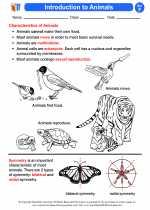
 Worksheet/Answer key
Worksheet/Answer key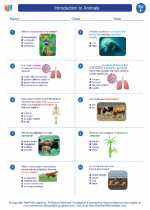
 Worksheet/Answer key
Worksheet/Answer key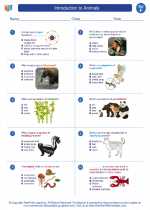
 Worksheet/Answer key
Worksheet/Answer key
 Vocabulary/Answer key
Vocabulary/Answer key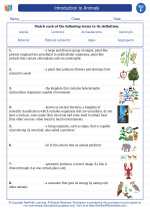
 Vocabulary/Answer key
Vocabulary/Answer key
 Vocabulary/Answer key
Vocabulary/Answer key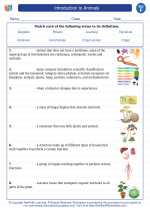
 Vocabulary/Answer key
Vocabulary/Answer key
